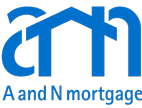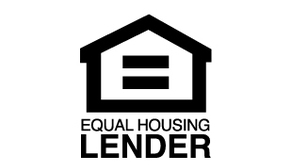So, you’ve finally found the home of your dreams. But if you’re not careful, buying and owning that home can quickly turn into a complicated ordeal. When applying for home loans, it’s all too tempting to accept the first mortgage product you’re offered as long as it gets you the keys to the home you’ve fallen in love with.
This is why, even if you’re racing to put in an offer on the home of your dreams before someone else snaps it up, it’s recommended that you do your research to be sure that you’re choosing the right home loan for your needs and circumstances. Otherwise, you could find that your choice of mortgage product has far-reaching and long-lasting implications for your future financial well-being. Your home loan will continue to affect you for years and even decades to come. So it’s important that you get this right.
Additional Read: Everything You Should Know Before Applying For Home Loan
But don’t worry. If you keep all of the following home loan tips and key considerations in mind, you’ll be able to find the perfect home loan for your property and enjoy years of happy and financially stable living in your dream home!
Rate of Interest: Fixed-Rate or Floating Rate
Your home loan’s interest rate is especially important as it determines how much of your monthly repayments becomes equity in your home and how much of it goes to the bank. It’s slightly more complicated than choosing the home loan with the lowest rate of interest. You also need to consider which kind of interest works best for you.
Simply put, you have two options when choosing an interest rate that meets your home loan requirements; Fixed Rate or Floating Rate (also called Variable or Adjustable-Rate).

The alternative is a floating rate. These have adjustable rates within certain parameters. These parameters are defined by the Cost Of Funds Index (COFI), Monthly Treasury Average (MTA) and the LIBOR (London Inter-Bank Offered Rate). Rates will change based on preset margins tied into these rates and will rise on a margin plus index basis.
This is why many floating rate interests start out with such attractive low rates. While rates may remain low, floating rates always carry a slight element of risk.
Interest Rate Negotiation
Whether you opt for a fixed or floating rate, the best thing to do is to shop around and try and get as many quotes as possible. You may be surprised by how much you could save. Keep in mind that lenders cannot “price match” one another’s rates (to do so would be to discriminate against other buyers of similar circumstances).
However, that’s not to say that there’s no room for negotiation.
You see, mortgage lenders are able to credit closing costs to a borrower under certain conditions. The most common is when lenders need to stay competitive in a climate of falling rates or when delays result in blown credit lock (a lender’s commitment to honor a set interest rate for a set time period). In these circumstances, you may be able to negotiate a more favorable deal.
Check Your Credit Score
It stands to reason that if they intend to offer you a large sum of credit, one of a lender’s key home loan requirements would be the applicant’s credit score. It’s easy to check your credit score online without adversely affecting it by using an online tool like Experian, Equifax or TransUnion.
If you’ve never checked your credit score or are unsure what it means, let us break it down for you.
Your credit score is a 3 digit number that can range from 300 (Poor) to 900 (Excellent). There are 5 determining factors that make up your credit score and these are as follows:
- Payment History- How well you’ve paid back previous debts (35% of total score)
- Total Debt- How much you already owe overall (30%)
- Credit History- How well you’ve paid off previous debts (15%)
- Credit Types- What kind of debt you’ve had prior e.g. loans or credit cards (10%)
- New Credit- How much you’re looking to borrow right now. (10%)
Minimum credit scores for most home loans are between 620 and 640.
Home Loan Eligibility Criteria
While every lender’s home loan eligibility criteria may vary, there are still certain criteria which prospective buyers will be expected to meet.

Debt to income ratio is also important in assuring lenders that you will be able to pay back your home loan and make monthly repayments. For conventional loans, a ratio of up to 50% may be acceptable. For FHA loans, however, the ratios are set by the Department of Housing and Urban Development (HUD). At present, the front-end ratio (housing only related costs like mortgage payments, insurance and property tax) is 31% and the back-end (all monthly debt including car payments, credit cards etc.) is 43%.
You’ll also need to provide your employment history to show that you have a good history of gainful employment, meet certain residency requirements (in most cases the property will need to be your primary residence for at least one year). Regardless of how much of a down payment you have, a lender will expect you to take out mortgage insurance.
These requirements can differ a great deal depending on the type of loan, whether conventional FHA or VA. A mortgage representative can help you understand these requirements as they apply to you.
Employment Stability For The First-Time Buyers
One of the most common pain points among first-time buyers is that they’re just starting out in their careers and don’t have demonstrable employment history or stability. Still, that doesn’t mean that they can’t apply for a home loan. In fact, loans have been approved on the strength of job offers.
Typically, a lender will want to see your past two years’ employment history and payment records. This does not mean that you need to have been conventionally employed. If you have been self-employed and have accurate books this is also acceptable.
It’s worth noting that some lenders may exclude bonuses, overtime or commissions as evidence of income and job stability, especially if you have less than 2 years’ job history.
Affordability: Insurance, Utilities, Maintenance
As tempting as it is to choose a property at the upper limit of what you can afford to borrow, keep in mind that affordability is about much more than your mortgage payments. It’s about insurance, utilities, maintenance and all the other associated costs that come with owning a home. Can you manage these effectively alongside your existing monthly expenses like car payments, loan repayments, credit cards etc. and still have enough disposable income for savings and happy life?
Loan Length: Longer-Term Loans vs Shorter-Term Loans
Few of us find it easy to project our thoughts 25-30 years into the future. Who knows what we’ll be doing and what our lives will be like at that point? Nonetheless, that’s what you’ll need to consider when determining the right mortgage loan length for you.
Longer-term loans have lower monthly payments, but more of that goes on higher rates of interest so it takes longer to gain meaningful equity on the home. Shorter-term loans, on the other hand, have higher monthly repayments but lower interest rates so you have more equity.
There’s a balance to be found there. You want to keep monthly payments affordable, but you certainly don’t want to have to worry about high mortgage payments when you reach retirement age.
Finding A Qualified Mortgage Lender To Help You Through The Process
As you can see, there’s a lot to consider when applying for a home loan and going it alone can be difficult. That’s why it’s advisable to find a qualified mortgage banker or broker in Chicago to fight your corner. Not only can they help demystify mortgage products, home loans and interest rates, but they can also often access better products which aren’t always available to the public.
Conclusion
When you’re ready to make a move on the home of your dreams, take a good look before you leap. There’s a lot to consider and a great many factors can muddy the waters when finding and applying for home loans. Consulting a qualified mortgage lender or broker can make it easier to make an informed decision that’s right for you. After all, this is a decision that’ll stay with you for decades. You wouldn’t want to make it arbitrarily, would you?
If you have any questions, please contact me today. A and N Mortgage Services Inc provides you with high-quality home loan programs tailored to fit your unique situation with some of the most competitive rates in the nation. Whether you are a first-time homebuyer, relocating to a new job, or buying an investment property, we will help you use your new mortgage as a smart financial tool.







